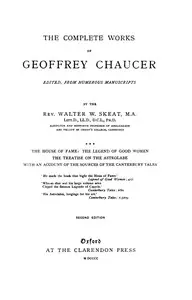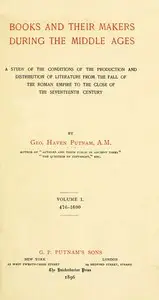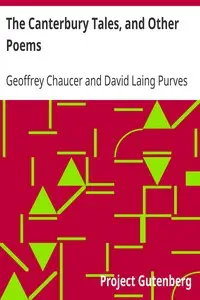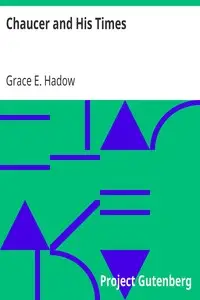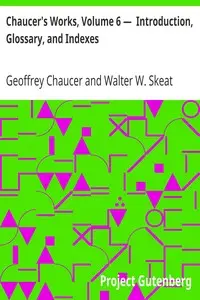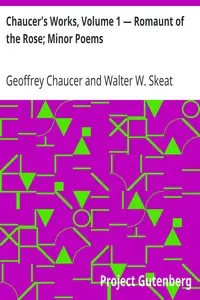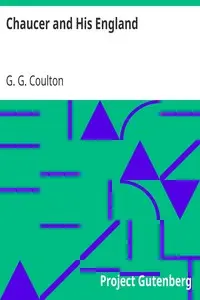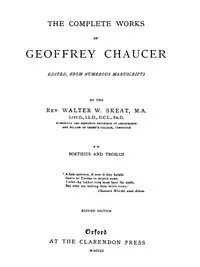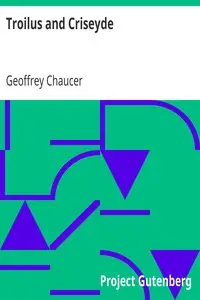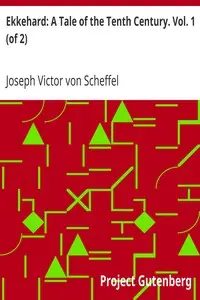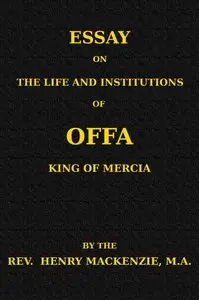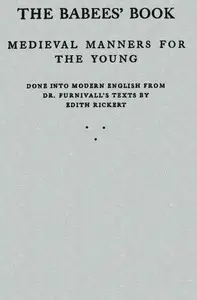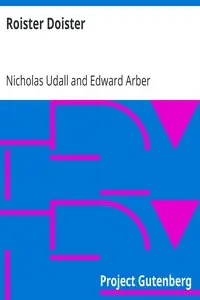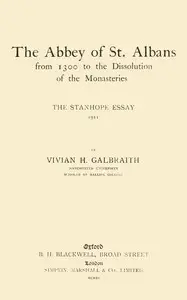"Chaucer's Works, Volume 5 — Notes to the Canterbury Tales" by Geoffrey Chaucer is a detailed exploration of "The Canterbury Tales," providing readers with a deeper understanding of the original Middle Ages text. This book, the fifth in a collection dedicated to Chaucer's writings, examines the history of the tales and their different versions, working to clarify what Chaucer truly wrote. It looks at previous editions and the hard work of experts trying to create correct versions of Chaucer's works, and highlights the importance of having trustworthy versions of Chaucer's writing because of issues with wrong additions and differences in old copies. The book prepares readers for notes that explain the meaning, language, and Chaucer's style, so everyone can better appreciate both "The Canterbury Tales" and their importance in history.
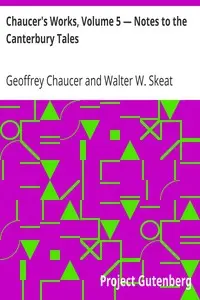
Chaucer's Works, Volume 5 — Notes to the Canterbury Tales
By Geoffrey Chaucer
Venture into the past to untangle a medieval masterpiece, where each page turn reveals the secrets behind a collection of stories and the quest to preserve them as they were originally written.
Summary
About the AuthorGeoffrey Chaucer was an English poet, author, and civil servant best known for The Canterbury Tales. He has been called the "father of English literature", or, alternatively, the "father of English poetry". He was the first writer to be buried in what has since come to be called Poets' Corner, in Westminster Abbey. Chaucer also gained fame as a philosopher and astronomer, composing the scientific A Treatise on the Astrolabe for his 10-year-old son, Lewis. He maintained a career in the civil service as a bureaucrat, courtier, diplomat, and member of parliament.
Geoffrey Chaucer was an English poet, author, and civil servant best known for The Canterbury Tales. He has been called the "father of English literature", or, alternatively, the "father of English poetry". He was the first writer to be buried in what has since come to be called Poets' Corner, in Westminster Abbey. Chaucer also gained fame as a philosopher and astronomer, composing the scientific A Treatise on the Astrolabe for his 10-year-old son, Lewis. He maintained a career in the civil service as a bureaucrat, courtier, diplomat, and member of parliament.

